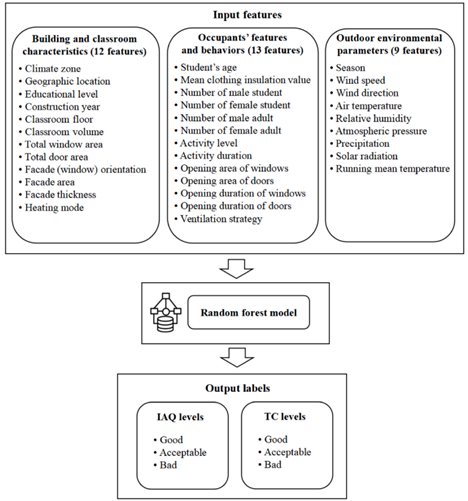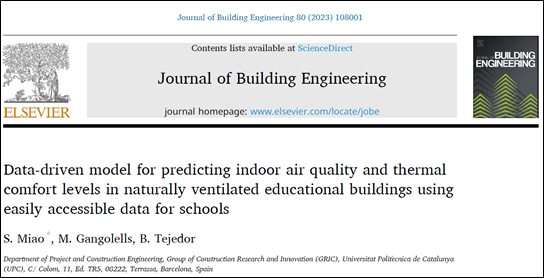The IAQ4EDU project has developed a novel predictive model for indoor air quality and thermal comfort assessment
Nov 30, 2023
The model has been published in the Journal of Building Engineering
The IAQ4EDU project has developed a novel predictive model for indoor air quality and thermal comfort assessment in educational buildings. The result has been published in the JCR-Q1 Journal of Building Engineering (Impact factor: 6.4) on December, 2023, under the title "Data-driven model for predicting indoor air quality and thermal comfort levels in naturally ventilated educational buildings using easily accessible data for schools". This work was conducted by the PhD student Sen Miao, under the supervision of Dr. Marta Gangolells, the principal investigator of the IAQ4EDU project, and Dr. Blanca Tejedor, the project researcher.
Existing indoor air quality and thermal comfort predictive models require the installation of monitoring sensors in the classrooms. This work proposed a novel methodology to develop the machine learning model for predicting and assessing indoor air quality and thermal comfort levels in the classrooms using easily accessible data for schools, thereby saving the cost of monitoring sensor installation on a large scale. The model only uses information related to building characteristics, weather conditions, and occupants' features and behaviors. The model was developed and evaluated with the data collected during the on-site measurement campaign of the IAQ4EDU project, achieving an average accuracy of 97% in indoor air quality prediction and 98% in thermal comfort prediction.

Input features and output labels of the RF model
Details can be found in the online version of the article.
For more information visit our social media pages:
 LinkedIn of the project
LinkedIn of the project  GRIC's Twitter
GRIC's Twitter  ResearchGate
ResearchGate


Share: